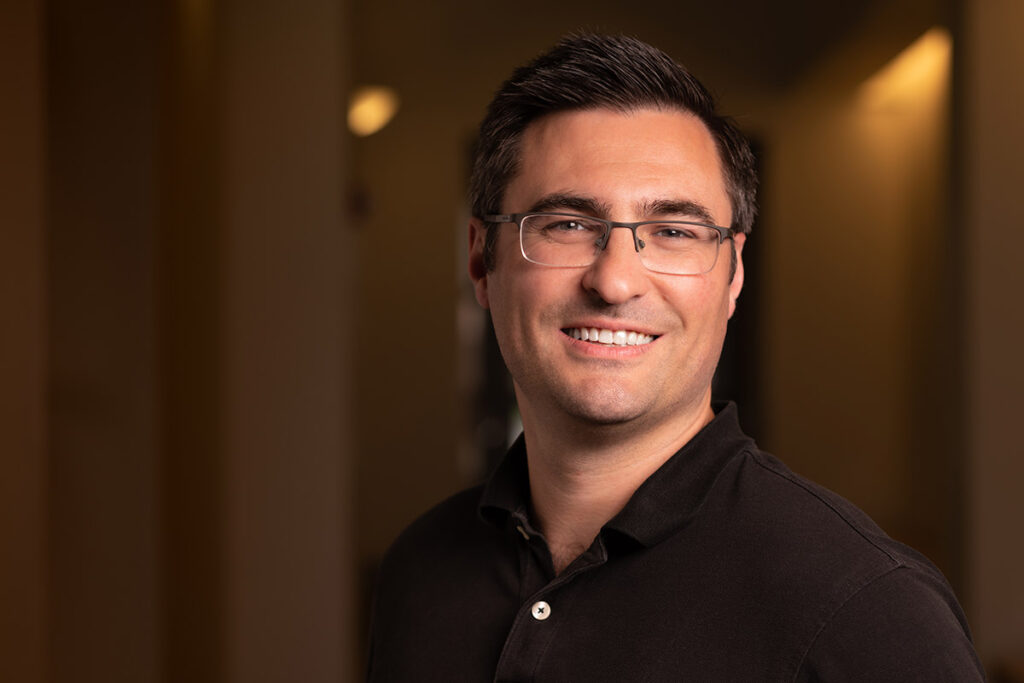Highlighting our faculty
- Faculty at Lafayette College are renowned leaders in their respective fields, exceptional teachers and dedicated mentors. Read more about our faculty, including Prof. Justin Hines.
Learn more about Prof. Hines, David M. ’70 and Linda Roth Professor of Chemistry

What is the focus of your research?
My research focuses on understanding the function of molecular chaperones (proteins that help other proteins to become and stay correctly folded) and yeast prions (proteins that aggregate and become infectious).
All living organisms are primarily made of proteins. Proteins act very much like machines and must adopt a specific shape in order to function correctly, much like the pieces of my car must be in their specific positions, rather than pile, in order for the machine to function. Ensuring that proteins reach and remain in this structure, called properly ‘folded,’ is a fundamental biochemical problem of all living cells. Numerous neurodegenerative diseases, including Alzheimer’s, Parkinson’s, and prion-diseases, are associated with the misfolding of a protein into a specific alternative shape called ‘amyloid,’ forming what are known as amyloid protein aggregates. The long-term goal of my laboratory work is to decipher the complex biochemical behavior of amyloid protein aggregates from the baker’s yeast Saccharomyces cerevisiae, known as ‘yeast prions,’ and the group of proteins that work to prevent or reverse protein misfolding, called molecular chaperones.
What will you be teaching in the fall?
I will be on sabbatical this fall so I will not be teaching any courses. However I frequently teach General Chemistry I and II, Survey of Biochemistry, Foundational Biochemistry, Advanced Biochemistry, and a First-Year Seminar course called “Misinformation in the Life Sciences.”
What attracted you to Lafayette, and what have you enjoyed and found most fulfilling during your time here?
I was most attracted to Lafayette because of the commitment to quality teaching, which included a strong emphasis on undergraduate research. I have found my interactions with our exceptionally talented and hard-working students to be the most fulfilling, both in my courses and in my research laboratory.
What does receiving an endowed chair mean to you?
It is an extraordinary honor, and I am humbled to be included among the other professors at the College who, in both the past and in the future, occupy these positions. We have an extraordinary faculty who put forth tremendous effort on behalf of the students, and it is always a delight to see them recognized.
How does this endowed position further your teaching and/or research?
The position will help me provide additional student learning experiences in my laboratory and in my courses, and will help me to attend scientific meetings to continue to learn and disseminate our own work.